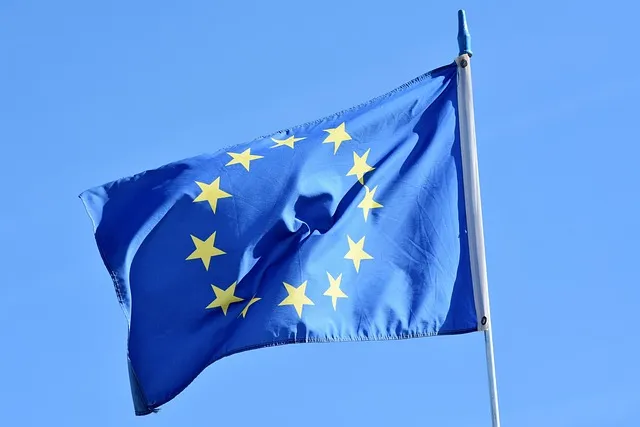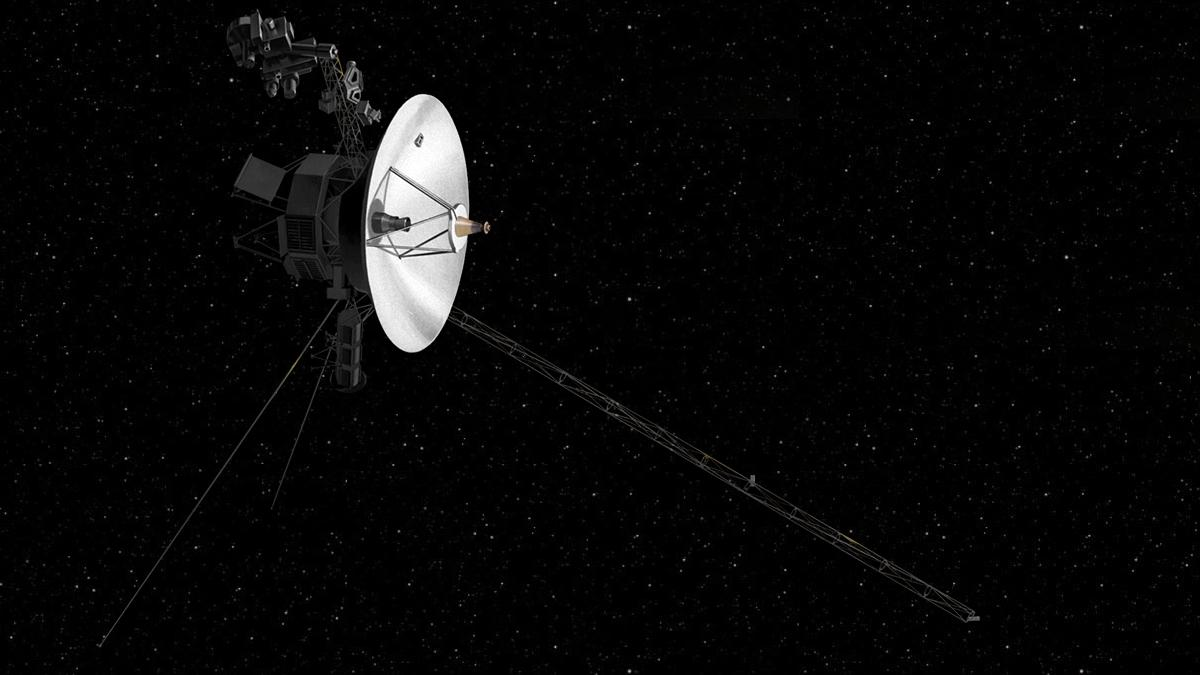| Previous
Page |
PCLinuxOS
Magazine |
PCLinuxOS |
Article List |
Disclaimer |
Next Page |
ICYMI: Google Incognito Mode Settlement Proposed |
|
by Paul Arnote (parnote)
 Image by Ralph from Pixabay It appears the European Union is wasting no time enforcing its Digital Markets Act (DMA): On March 25, 2024, we learned Apple, Google, and Meta will all be investigated for potentially violating the DMA, according to an article from Lifehacker. If found guilty, each company could face up to 10% of their total annual revenue not just in the E.U. but globally — 20% for “repeat infringement.” Violate the E.U.'s laws, pay with the money you earned everywhere. The DMA is only 18 days old as of the announcement of the investigation: Europe put the law into action March 7, a deadline these big tech companies needed to adhere to. Apple, for example, was required to offer developers the ability to create their own third-party app stores, as well as create true mobile browsers not based on Safari's WebKit platform. Meta, on the other hand, needed to open up WhatsApp and Messenger to third-party messaging services. The European Commission labels six companies as “gatekeepers,” identifying them as blocking third-party innovation through their use of specific apps and services. (Interestingly, it did not find Apple's iMessage to be a gatekeeping service.) In addition to Apple, Google, and Meta, the Commission has found Amazon, ByteDance, and Microsoft as gatekeepers. Human brains appeared to be getting bigger, temporal trends showed, according to an article from MedPage Today. From the 1930s to 1970s, brain volumes and cortical surface area of people who had neither dementia nor stroke became progressively larger, reported Charles DeCarli, MD, of the University of California Davis in Sacramento, and co-authors in JAMA Neurology. When researchers compared people born in the 1930s with those born in the 1970s and adjusted for age and sex, they found (all P<0.001): intracranial volume was 6.6% greater (1,234 vs 1,321 mL), white matter volume was 7.7% greater (441.9 vs 476.3 mL), hippocampal volume had a 5.7% greater value (6.51 vs 6.89 mL), and cortical surface area had a 14.9% greater value (1,933 vs 2,222 cm²). Overall gray matter volume did not increase significantly. Cortical thickness was thinner by 20.9% (2.34 mm vs 1.85 mm) over the same period. The larger brain volumes indicate larger brain development and potentially greater brain reserve that may explain the declining incidence of dementia, the researchers hypothesized. (It's sad, though, that the increased cranial capacity isn't necessarily resulting in smarter people. Just look around.)
Have you ever thought about where the term Wi-Fi comes from? That's the question an article from Gizmodo takes a look at. Most people would logically assume it's a shortened version of some highly technical description for the tech that allowed computers to access the internet wirelessly. But those people would be wrong. In reality, the term was created by… Nah! I'm not going to tell you here. Go ahead and go read it for yourself.
 Google agreed to destroy or de-identify billions of records of web browsing data collected when users were in its private browsing “Incognito mode,” according to a proposed class action settlement filed on April 1, 2024, says an article from The Verge. The proposed settlement in Brown v. Google will also mandate greater disclosure from the company about how it collects information in Incognito mode and put limits on future data collection. If approved by a California federal judge, the settlement could apply to 136 million Google users. The 2020 lawsuit was brought by Google account holders who accused the company of illegally tracking their behavior through the private browsing feature. The proposal is valued at $5 billion, according to Monday's court filing, calculated by determining the value of data Google has stored and would be forced to destroy and the data it would be prevented from collecting. Google would need to address data collected in private browsing mode in December 2023 and earlier. Any data that is not outright deleted must be de-identified. AT&T is having a rough year. Back in February, customers experienced a massive network outage that lasted about 12 hours. This month, the company has another round of bad news: AT&T suffered a massive data breach that impacted over 70 million customers (7.6 million current and 65.4 million former ones), according to an article from Lifehacker. The data made its way to the dark web, a popular destination for bad actors to sell stolen data and information, and the company doesn't exactly know whether the breach occurred through AT&T itself or third-party vendors. On March 29, 2024, a lone Microsoft developer rocked the world when he revealed a backdoor had been intentionally planted in xz Utils, an open source data compression utility available on almost all installations of Linux and other Unix-like operating systems, according to an article from ArsTechnica on April 1, 2024. The person or people behind this project likely spent years on it. They were likely very close to seeing the backdoor update merged into Debian and Red Hat, the two biggest distributions of Linux, when an eagle-eyed software developer spotted something fishy. “This might be the best executed supply chain attack we've seen described in the open, and it's a nightmare scenario: malicious, competent, authorized upstream in a widely used library,” software and cryptography engineer Filippo Valsorda said of the effort, which came frightfully close to succeeding. Researchers have spent the weekend (since its discovery) gathering clues. Here's what we know so far. (There's another excellent article over at TechRepublic).  Image by Lumina Obscura from Pixabay On April 4, 2024, astronomers who are conducting what they describe as the biggest and most precise survey yet of the history of the universe announced that they might have discovered a major flaw in their understanding of dark energy, the mysterious force that is speeding up the expansion of the cosmos, according to an article from the New York Times. Dark energy was assumed to be a constant force in the universe, both currently and throughout cosmic history. But the new data suggest that it may be more changeable, growing stronger or weaker over time, reversing or even fading away. The U.K. government has formally agreed to work with the U.S. in developing tests for advanced artificial intelligence models, according to an article from TechRepublic. A Memorandum of Understanding, which is a non-legally binding agreement, was signed on April 1, 2024 by the U.K. Technology Secretary Michelle Donelan and U.S. Commerce Secretary Gina Raimondo. Both countries will now “align their scientific approaches” and work together to “accelerate and rapidly iterate robust suites of evaluations for AI models, systems, and agents.” This action is being taken to uphold the commitments established at the first global AI Safety Summit last November, where governments from around the world accepted their role in safety testing the next generation of AI models.
After more than 9,940 miles (16,000km) over 352 days across 16 countries, Russ Cook, aka the “Hardest Geezer”, has completed the mammoth challenge of running the length of Africa, according to an article from The Guardian. The 27-year-old endurance athlete from Worthing, West Sussex, crossed the finish line in Tunisia on Sunday afternoon, and planned to celebrate with a party — as well as a strawberry daiquiri — having raised more than £600,000 for charity. His achievement, believed to be the first person to run tip to tip from southern to northern Africa, was more extraordinary given several setbacks including a robbery at gunpoint in Angola, being held by men with machetes in the Republic of the Congo, health scares and visa complications.  JPL/Nasa NASA's pioneering Voyager 1 spacecraft has a memory problem. The space agency has been troubleshooting the elderly machine since it began sending back gibberish communications in November, according to an article from Forbes. NASA hasn't fixed Voyager 1 yet, but engineers now know what's vexing the spacecraft. The glitch paused Voyager 1's science work and kicked off a long-distance diagnosis process. The team traced the issue to the flight data subsystem, a computer that talks to the spacecraft's telemetry modulation unit to send science and engineering data to Earth. The data came back unintelligible. The culprit appears to be a single chip that's part of the FDS. The breakthrough came thanks to a “poke” NASA sent in March that prompted Voyager 1 to send back a readout of its FDS memory. “Using the readout, the team has confirmed that about 3% of the FDS memory has been corrupted, preventing the computer from carrying out normal operations,” NASA said in a statement on April 4. If life exists on Jupiter's moon Europa, scientists might soon be able to detect it, according to an article from phys.org. Europa is one of the largest of more than 90 moons in orbit around the planet Jupiter. It is also one of the best places to look for alien life. Often termed an “ocean world” by scientists, observations to date strongly suggest that beneath Europa's icy crust, there could be a liquid saltwater ocean containing twice as much water as Earth's oceans. Now, Nasa's Europa Clipper — the largest spacecraft ever developed by the US space agency for a planetary mission — may have the tools to detect it.
American rescuers found three lost sailors on a tiny uninhabited island in Micronesia with a damaged boat and the word “HELP” spelled out on the beach, according to an article from the New York Times. The three men were stranded on the remote, uninhabited island (called Pikelot) for more than a week. The men, who were experienced mariners in their 40s, set sail on March 31 from Polowat Atoll, an island that is part of the Federated States of Micronesia, in a 20-foot open skiff powered by an outboard motor. After their unintended delay, the Coast Guard said, the men had been safely returned home Tuesday evening. Pikelot is a tiny dot in the Pacific Ocean covered in palm trees and bushes, measuring less than 2,000 feet in length. The Micronesian island was part of a search area that the Coast Guard said spanned more than 100,000 square miles.
 Image by Aristal Branson from Pixabay New technology, which was created at the University of Turku and developed by the company CardioSignal, uses a smartphone to analyze heart movement and detect heart failure, according to an article from ScienceDaily. The study involved five organizations from Finland and the United States. Gyrocardiography is a non-invasive technique for measuring cardiac vibrations on the chest. The smartphone's built-in motion sensors can detect and record these vibrations, including those that doctors cannot hear with a stethoscope. The method has been developed over the last 10 years by researchers at the University of Turku and CardioSignal. Do you want to learn how to stop your data from being used to train AI? Well, that's the whole premise of an article from Wired. Some companies let you opt out of allowing your content to be used for generative AI. This article describes how to take back (at least a little) control from ChatGPT, Google's Gemini, and more. Is time travel really possible? Here's what physics says, according to an article from BBC. Answering this question requires understanding how time actually works — something physicists are far from certain about. So far, what we can say with confidence is that traveling into the future is achievable, but traveling into the past is either wildly difficult or absolutely impossible.  Image by OpenClipart-Vectors from Pixabay Apple sent a threat notification to iPhone users in 92 countries on April 10 informing them that their device was “being targeted by a mercenary spyware attack,” according to an article from TechRepublic. The alert, sent at 12:00 p.m. Pacific Time, told recipients that the attackers were attempting to “remotely compromise” their phone and that they were likely being targeted specifically “because of who you are or what you do.” Apple's notification did not identify the alleged attackers, nor did it specify the locations of its recipients. On April 12, 2024, Roku confirmed a cyberattack compromised roughly 576,000 accounts, according to an article from Lifehacker. It marks the second such cyberattack to affect the company, which compromised a smaller number of accounts earlier this year. As Roku has over 80 million active accounts, the chances of yours being among the fraction of a percent of users affected is small. Still, Roku says it has reset passwords for all users affected in this attack. In last month's ICYMI article, we told you about how your fancy new car may be spying on you. Well, it seems coverage of this little secret is expanding. According to an article from Lifehacker, if your car is relatively new, it's been designed as a spying superstar — modern cars typically have microphones, cameras, and tons of sensors collecting data. But it's not just the sensors built into the car itself — there are also all the apps installed on the car's interface, plus all the apps installed on your phone, which you probably link to the car via Bluetooth, giving away all sorts of privacy in the process. That means car manufacturers can potentially know the music you listen to, things you say inside the car, and the locations you look up on map apps. We're firehosing private information to a car maker; we just don't think about it. In fact, some car manufacturers even admitted to tracking your sexual activity in relation to your car, along with health data.  Image by Iuliia Bondarenko from Pixabay Women across the country have been bonding online over their “Ozempic babies” – surprise pregnancies while taking weight loss medications, despite being on birth control or having a history of fertility issues, according to an article from USA Today. Now, some of them say they're experiencing intense symptoms such as extreme hunger and rapid weight gain after quitting these drugs cold turkey to protect their baby's health. Medications like Ozempic, Mounjaro, WeGovy and Zepbound appear to boost fertility because the weight loss they induce corrects hormonal imbalances caused by obesity and metabolic disorders; some of them may also reduce the efficacy of birth control pills, increasing chances of pregnancy. One of the internet's simple pleasures is watching YouTube with an ad blocker. You can watch as many videos as you want without constant interruptions from obnoxious, occasionally unskippable commercials. But ads are how YouTube makes its money, so it's not too happy when people use ad blockers to avoid them, according to an article from Lifehacker. Last year, the company started taking a more proactive approach to the situation, showing some ad blocker users a pop-up suggesting they disable their ad blocker or subscribe to YouTube Premium. After that, the company started blocking video playback entirely. (That said, even today, I don't see the pop-up on my work profile with uBlock Origin.) YouTube is far from the first site to issue such an anti-ad blocker message, but this was definitely a first for this free video platform. And it won't do you much good to switch to YouTube clients that “skip” the ads, because YouTube is cracking down on those, too. The article goes on to describe how to work around the greedy crackdown. Have you ever wondered what really happens when you trade in an iPhone at the Apple Store? This article from Bloomberg news sheds some light on what happens. Apple touts its network of shredding robots and contractors as a greener way to reuse old gadgets. A lengthy court battle and a Businessweek investigation have cast some light on the recycling industry's dirty secrets.  Google Chrome is testing a new feature that lets you enable or disable all your extensions by clicking a single button, according to an article from Lifehacker. Be it debugging or saving resources, there are many reasons why you might want to use this feature, which was first spotted by Gamer Stones. With this new feature, you can quickly disable all extensions and reload the page to determine what's causing the issue. Similarly, if your laptop is low on battery or if your PC is running slow, you could quickly disable all Chrome extensions to improve performance. You might also consider using this feature when you're taking an online test, going through an important application, or in other situations where you're required to turn off browser extensions. Like them or hate them, YouTube Shorts are here to stay, says an article from Lifehacker. If they wish they weren't constantly popping up on your feed, you can do a few things to weaken their pull on your already declining attention span. YouTube's own option lets you temporarily hide them, but you need third-party extensions to banish them forever. The Guardian takes a look at pesticide levels of common fruits and vegetables in their article “What's safe to eat? Here is the pesticide risk level for each fruit and vegetable.” I suspect you'll be as surprised as I was. Not to be a spoiler, the fruits and vegetables labeled as “Organic” win hands down with the safest levels of pesticides. So, I guess maybe there is a difference between “conventional” and “organic” foods that justifies their slightly higher price at the checkout after all. |


